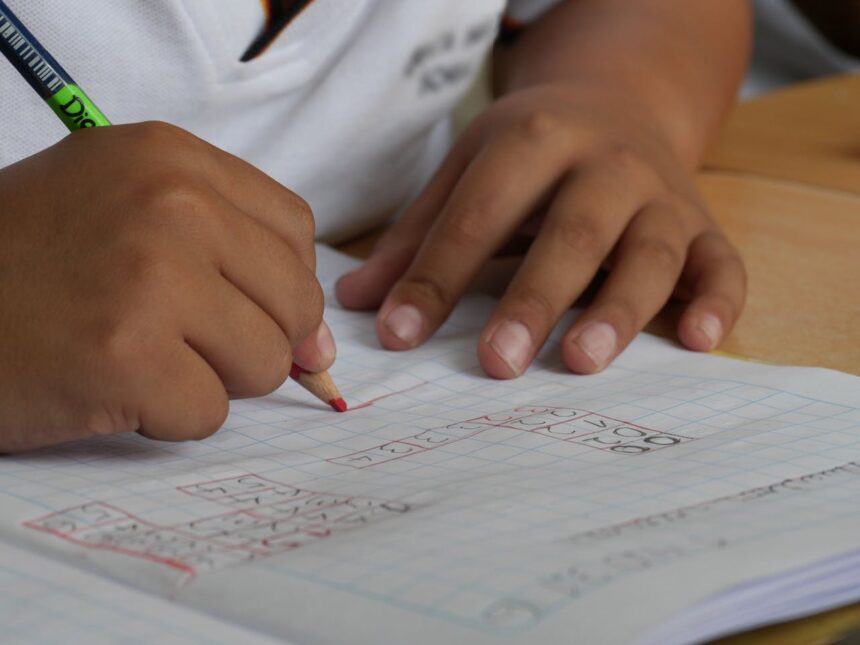When is the right time to bring Montessori learning into your kid’s life? Imagine this scenario: Your child is growing quickly, full of curiosity and excited to learn.
You want to nurture their innate love for learning and provide them with an education that supports their individual needs. This is where Montessori education comes in.
Ready to help your kid love learning for life and be independent?
Let’s explore Montessori teaching. We will find the perfect age to start this educational journey.
Best time to enroll your kid in Montessori Education
In Montessori teaching, kids are sorted into various age groups. This helps guarantee fitting learning encounters. These groups cover preschool, kindergarten, and elementary levels.
Knowing the unique features of each group gives parents a guide. It helps them decide when their child should start Montessori education.
Preschool Age Group: 2.5 to 5
Montessori kindergartens mostly welcome kids who are 2.5 to 6 years old. This phase is a vital part of their growth. They learn rapidly from activities they can touch and do. In Montessori, classrooms are designed for kids to be self-reliant. Kids can improve their social skills and boost intellectual growth. Kids participate in tasks that target life skills, sensory exploration, and enhancing language and math basics. An environment of mixed ages aids older kids to guide the younger ones, creating a bond of teamwork and community.
Kindergarten Age Group: 5 to 6
Montessori pre-schools are designed for kids who are 5 to 6 years old. By this time, kids have learned basic real-life skills and had sensory experiences. The teacher focuses on challenging language and math concepts. They also explore science. These preschools create an environment that helps kids grow. Kids can develop their thinking, creativity, and problem-solving skills there. This stage prepares kids for primary school and fosters a lifelong love for learning.
Learn more about our Montessori programs.
Elementary Age Group: 6 to 12
Montessori schools mainly have kids aged 6 to 12. At these schools, vital education covers many subjects. Kids learn language arts, math, science, geography, and previous events. This way, Montessori gets kids interested and lets them explore interesting topics alone.
They build skills like critical thinking and problem-solving. Rooms with different ages help to create community and teamwork. Plus, learning from other students is encouraged. On top of that, Montessori’s elementary lessons prepare kids for more advanced learning. It gives them what they need to keep learning their whole life.
Knowing how age groups work in Montessori schooling allows Moms and Dads to pick the best time to register their kiddo.
This way, they are sure to get the most beneficial and stimulating learning journey.
Benefits of Early Montessori Education
Individualized Learning
Montessori teaching understands that each kid is different, with distinct passions, talents, and ways of learning. It enables kids to learn at their speed, sparked by their curiosity. This technique prompts self-driving, independence, and an affection for learning.
Holistic Development
The Montessori way looks at all the parts of a child’s growth, not just the brain but feelings, friendships, and fitness. Children learn important skills by working with helpful tools and real tasks. They practice focusing, finding answers to difficult questions, thinking critically, and collaborating effectively with others.
Prepared Environment
Montessori rooms are well-built to help make an environment that encourages discovery and study. Montessori tools are designed to fit the child’s age. These tools stimulate sensory activities and aid in muscle advancement. They also boost brain development. Kiddos have the liberty to select tasks and participate in learning on their own.
Strong Foundation for Future Education
Starting early with Montessori learning gives kids valuable skills. It sets the stage for later school triumphs. Montessori highlights focus, self-control, and enthusiasm for discovery. These traits ease the shift to regular classrooms. Kids schooled in Montessori often excel in reading, writing, and cracking challenging problems.
Nurturing Social Skills
Montessori spaces welcome various ages together, letting kids mingle with mates of diverse years. It fosters unity, caring, and honour for others. Young ones pick up on how to be answerable for their deeds and be valuable to the group. This breaks a feeling of being included and knowing about their society.
Lifelong Love for Learning
An important advantage of starting Montessori education early is creating a lasting love for learning. Montessori breeds positivity and interest in children’s education. This internal drive sets the stage for the ongoing quest for intellectual development and self-improvement throughout life.
Learn more about First Academy and our mission
Conclusion: Choosing the Best Age for Montessori Education
Wrapping up and figuring out the best age for your kid to start Montessori schooling requires thoughtful evaluation of their personal needs and growth markers. It is crucial to comprehend the advantages of Montessori education at different stages of development to make a confident decision that aligns with your child’s individual learning path.
Here are the key factors to consider:
- Key Growth Phases: Montessori teaching considers crucial growth stages in a kid’s life. These high-impact times give great chances for learning and building abilities. Enroll your child in these stages, like the critical phase for language or exploring with senses, and you get the most from Montessori teaching.
- Prepping for Growth: Consider whether your child is ready for a Montessori education. Consider their social skills, emotional maturity, cognitive abilities, and physical prowess. Montessori programs are shaped for different age groups. They aim to engage kids, offering maximum benefits of the syllabus fully.
- Prolonged Advantages: Enrolling in Montessori classes early in life can yield enduring perks. Studies show that kids in Montessori programs display more self-reliance, positive self-view, and scholastic success. These upsides lay the foundation for an ongoing passion for acquiring knowledge.
- Trust your gut as a parent: Think about what’s unique to your kid. Chat with Montessori teachers. Visit the schools you are thinking about. This way, you’ll learn more about their teaching style and beliefs. Picking the right age for Montessori education helps your kid love learning. It makes them want to explore and learn on their own for life.
Keep in mind that each child is unique, and no universal solution exists. So, cherish the adventure and foster your child’s passion for gaining knowledge each stride.
Want more information about how to enroll your child? Contact us!

